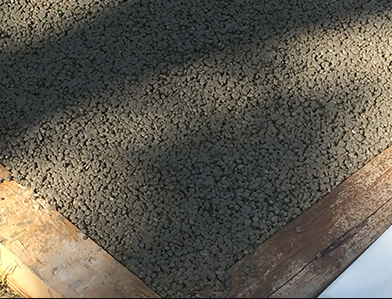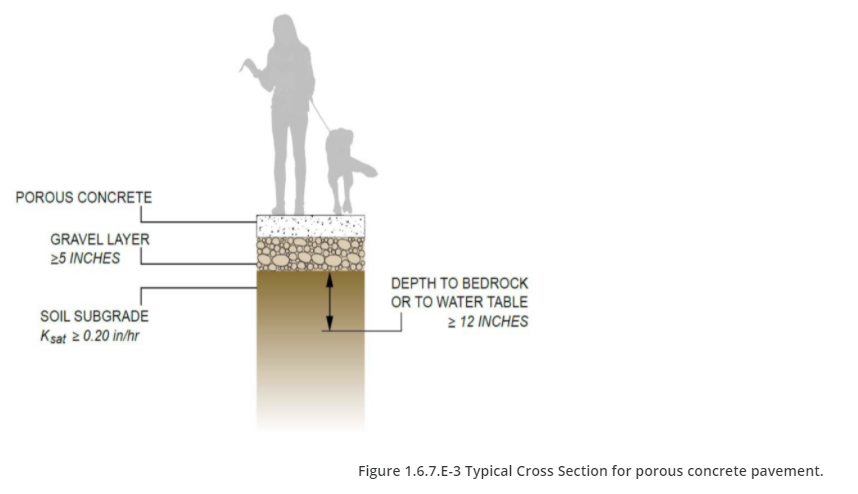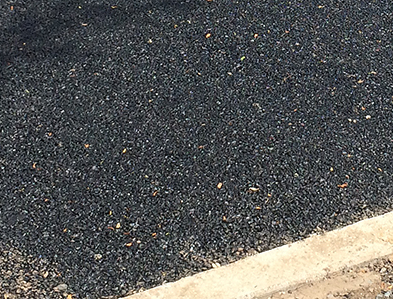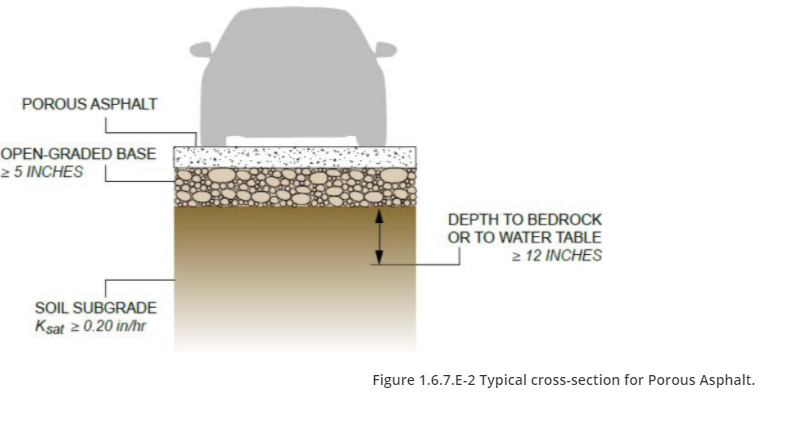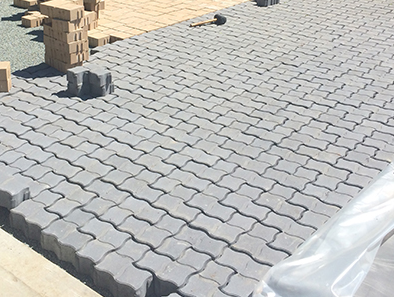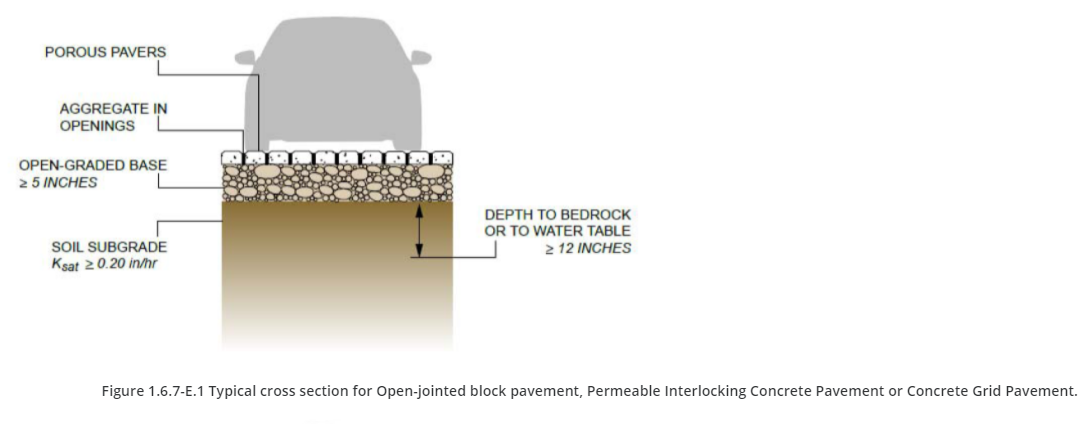What is Pervious Paver
Pervious pavers, also known as permeable pavers, are a type of interlocking paving material that allows water to pass through them and infiltrate into the ground below. They are designed to reduce stormwater runoff, which can contribute to flooding and erosion, as well as water pollution by carrying pollutants from paved surfaces into streams and rivers. By allowing water to infiltrate into the ground, pervious pavers can help recharge groundwater and support healthier ecosystems. They are commonly used for driveways, parking lots, walkways, and other outdoor surfaces, and can be found in both residential and commercial settings.
How Do Pervious Paving system works
Types of Pervious/Permeable Pavers
Pervious/Permeable Concrete : These are made from a special mix of concrete that has a high porosity, allowing water to penetrate through the surface. They are typically made from concrete or plastic and have larger gaps or voids between them, allowing water to flow through. The void spaces may be filled with gravel, crushed stone, or sandy material to enhance water filtration.
Credit Image: USGS Wisconsin Water Science Center. Public domain
Pervious/Permeable Concrete Illustration
It's important to note that the use of permeable concrete is not suitable for all locations and situations and may require more frequent maintenance compared to conventional pavements. Regular cleaning and occasional vacuuming are recommended to maintain their effectiveness.
Porous Asphalt : These are similar to traditional asphalt, but have larger aggregate and a special binder that creates larger voids in the material, allowing water to pass through. This type of paving system is widely used for parking areas, sidewalks, driveways, playground, walking/biking paths, residential street and other applications. However, the permeable nature of porous asphalt might not be suitable for certain high-traffic areas or heavy load applications. Porous asphalt can provide a service life of 20 years when properly designed and maintained.
Credit Image: USGS Wisconsin Water Science Center. Public domain
Porous Asphalt Illustration
If you are considering using porous asphalt in your next construction project, be sure to consult with a qualified contractor to ensure that the asphalt is properly designed and installed.
Permeable Interlocking Concrete Pavers (PICP) : These are made from concrete or clay and have spaces between them that can be filled with gravel, sand, or vegetation. They can be arranged in a variety of patterns. PICP is designed to provide both a durable and permeable surface, making it an eco-friendly solution for managing stormwater runoff.
Credit Image: USGS Wisconsin Water Science Center. Public domain
Permeable Interlocking Concrete Pavers Illustration
If you're looking for a durable, eco-friendly and sustainable pavement material, PICP is a good option to consider.
Plastic grid pavers: Plastic grid pavers, also known as permeable plastic pavers, are a type of paving system made from durable plastic materials. These pavers are designed with large open-grid structure that allow water to flow through surface and infiltrate into the ground. They are commonly used in various applications to provide a stable and permeable surface.
Plastic grid pavers became popular in various construction and landscaping projects particularly in environmentally sensitive areas.
Credit Image: matthe hills/flickr
If you are looking for a durable, low-maintenance, and permeable paving material, then plastic grid pavers are a good option.
Turf pavers: Also known as grass pavers or turf reinforcement grids, are a type of permeable paving system made up from plastic, concrete or recycled materials. It is a type of paving system that offers an effective solution for balancing the need of paving while maintaining green spaces and improve air quality by supporting the growth of grass and plants, thus creating a natural-looking permeable surface.
Image Credit: Dawn Easterday/Flickr
If you are looking for a durable, low-maintenance, and environmentally friendly paving material, then turf pavers are a good option.
Each type of pervious paver has its own advantages and disadvantages, and the choice of which type to use will depend on the specific application, local climate, amount of rainfall in the area, the type of soil, and the intended use of the pavement.
Benefits of Pervious Paver
Stormwater management: Pervious pavers allow rainwater to infiltrate into the ground, reducing stormwater runoff and minimizing the risk of flooding and erosion.
Improved water quality: Pervious pavers filter pollutants from rainwater as it infiltrates into the ground, helping to improve the quality of water in nearby water bodies.
Reduced heat island effect: Pervious pavers absorb less heat than traditional paving materials, reducing the urban heat island effect and helping to mitigate climate change.
Improved air quality: Pervious pavers allow for better soil aeration, which can promote plant growth and improve air quality.
Durability: Pervious pavers are durable and can withstand heavy traffic and harsh weather conditions, making them a long-lasting and cost-effective paving solution.
Aesthetics: Pervious pavers come in a variety of shapes, colors, and textures, allowing for a range of creative design options.
Conclusion
As urbanization is rapidly growing, homeowners, contractors, builders, construction companies and even environmental legislators are making some efforts on how to reduce and regulate the effects of storm water runoff without compromising the negative impact to our environment. Pervious pavers/pavements offer important sustainability and environmental benefits. It provides solutions that could reduce the risks of flooding, erosion, landslides, pavement ice buildups and protect natural waterways helping to preserve our environment. Additionally, they can provide habitat for plants and animals, which can help to improve biodiversity in urban areas.
Recommendations: We should always check and review every municipality or area’s building code and regulations for using pervious pavers.
For Installations & Maintenance read more on: http://www.austintexas.gov/sites/default/files/files/Watershed/growgreen/2020LPT/Permeable-Paver-Installation-Maintenance-David-Hassness.pdf
Article Sources:
https://stormwater.pca.state.mn.us/index.php/Types_of_permeable_pavement
https://www.truegridpaver.com/complete-guide-permeable-paving-systems%EF%BB%BF/
https://www.epa.gov/system/files/documents/2021-11/bmp-permeable-pavements.pdf
https://www.concretenetwork.com/pervious/
https://www.conteches.com/Contech-Engineered-Solutions/stormwater/turf-pavers


